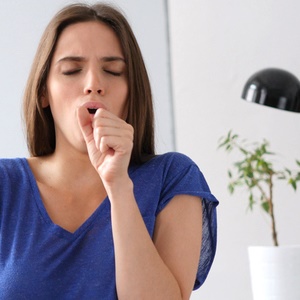
The year is in full swing, but no matter how careful you are, your seasonal allergy symptoms – most often caused by pollen or dust – can significantly affect your mood and productivity at work.
Fortunately there are ways to reduce the sneezing, itchy eyes and headaches. Here are some tips to help you:
1. Ensure a properly ventilated work space
Not all office buildings are the same, and whether you can open a window, or if you are dependent on an air conditioner, make sure that you have a proper airflow. If you have windows that you can open and shut, keep them closed during the early mornings and late afternoons when pollen counts are at their highest.
Is the air in your office too dry? Invest in a humidifier you can use at your desk.
2. Start taking your allergy medication before your symptoms kick in
Dr Adrian Morris, Health24's resident allergy expert, suggests taking antihistamines before the beginning of the pollen season so that you can start building a tolerance before the dreaded symptoms start.
If you feel a new onset of hay fever symptoms in warm weather, check in with your doctor or allergist to adapt your medication.
3. Keep your desk clean and tidy
Avoid the onset of irritation from dust and pollen brought in from outside by regularly wiping and dusting your work surface.
If you wear a coat or jacket to work, take it off and hang it away from your desk if possible, or keep it in your car if you park close enough to your office. This will keep any accumulated pollen or pet dander away from your workspace.
4. Protect yourself against the elements
Not everyone works at a desk in an indoor office. Those who constantly work outdoors are more exposed to pollen and cannot avoid these triggers, especially when working on a construction site.
However, you can take physical measures to stave off the pollen. Apply a thin layer of Vaseline around your nostrils – this helps to “trap” any irritants before they enter the nose. You can also wear wrap-around sunglasses or a protective buff or mask over your mouth and nose when the pollen count is high.
5. Get the best antihistamine for your work situation
While some medications can be bought over the counter without a prescription, it’s important to consult your doctor or chemist about the best medication for your specific situation. Some ingredients such as diphenhydramine and doxylamine succinate can cause drowsiness, which can be problematic if you operate heavy machinery, drive for a living or need to maintain high levels of concentration.
Antihistamines work by reducing the inflammatory reaction caused by histamine in the body – it’s basically a “healing process”. While older antihistamines can cross the blood-brain barrier, newer generation anti-histamines such as loratadine and fexofenadine cause less drowsiness.
6. Shower the day off
Minimise the pollen you bring into your home from outside by immediately taking a shower and changing your clothes as soon as you get home from work.
7. Take note of your commute
While some of us unfortunately can’t escape the hustle and bustle in cities, there are ways to minimise the effect of irritants such as fumes, pollen and dust while you commute.
Studies have shown that your daily commute can impact your hay fever – ragweed seeds can spread more quickly in areas where there is heavy traffic. This, combined with the effects of urban air pollution, can spell misery for those who suffer from seasonal allergies.
Vacuum the interior of your car regularly as dander and pollen pores can cling to the dashboards, carpets and seats. Always drive with your windows closed and keep your air conditioner in good working order to ensure proper ventilation if you spend a lot of time in your car.
8. Be proactive
Get involved at your workplace – if there are triggers (someone who wears heavy perfume, for example) or if the ventilation is poor, talk to your human resources or maintenance team to help find a solution.
If your work situation allows for it, make use of flexi-time to avoid travelling to work during times when pollen is high, or work remotely if your symptoms are making you feel miserable.
9. Be mindful of those around you
While you may not be experiencing hay fever, you might not know if that layer of cat fur on your cardigan is affecting the person sitting next to you, or whether your favourite vintage floral perfume is choking up the atmosphere.
Take note that other colleagues may be suffering from allergies, so avoid spraying strong perfumes and deodorants at your desk and keep your coat that may be covered in pet dander or pollen away from others.
10. Be prepared
As the pollen problem worsens, precise and expanded monitoring becomes even more essential. And here's how you can help.
Amid the highest recorded pollen counts in history, Health24 will be bringing you exclusive weekly pollen count updates courtesy of the UCT Lung Institute's Allergy and Immunology Unit.
Image credit: iStock




 Publications
Publications
 Partners
Partners
















